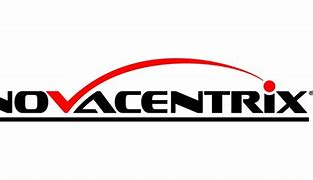We are changing our name from Blue Wolf to QIC Global
We are changing our name from Blue Wolf to QIC Global
Save energy resources with the help of the ISO 50001 framework. Allow QIC Global to assist you in the certification process by providing the third-party audits for your organization.





ISO 50001 is the internationally recognized energy management standard that helps to identify and mitigate risks in maintaining and mobilizing energy resources. Sustainability is a global concern. Getting ISO 50001 certification acts as a commitment towards saving nature through eco-friendly practices. The standard aims to integrate a hassle-free framework of energy management into the existing business operations of a company. ISO 50001 clauses establish a set of practical policies that effectively guide the management in timely identifying potential threats. They support companies in tactfully managing the risk factors associated with energy consumption. According to the findings, apt action plans are employed.
The standard helps with promoting a positive work culture where the stakeholders possess enough awareness towards sustainability. ISO 50001 generates enthusiasm, which affects the workers’ performance. They proactively take part in the decision-making and energy resource management process. The standard offers a comprehensive support system that helps companies systematically minimize energy waste. The clauses stand for continuous improvement. It augments the process of amending business operations for sustainability.
ISO 50001 is about improving business operations for saving energy resources. The beneficial aspects of the standard ensure not only a low wastage but also compliance. The following practices are some of the advantages that a company can enjoy with the certification -

ISO 50001 provides an orderly pathway towards an actual Energy Management System (EnMS) implementation. Compliance requires things an organization must do:
Common failures to meet auditing standards of ISO 50001 tend to be:
Closing such gaps will not only make certification easier, but also will deliver actual savings, and environmental savings.



“I want to express my sincere appreciation for your support during our recent ISO audit.”


“One of the best business decisions I think we've made in the entire time we've been here in the company.”


We make auditing your ISO Standards easy. We know audits can be stressful. We’ll take the stress out.


“What seemed like a very intimidating process … was made simple … and [has] elevated our quality and safety program to another level.”


“…our staff feel comfortable talking to [the auditor]… makes you feel like you are working together”


“…Relaxed, didn't feel pressured..."


“I would just say, if you want the best and you want to things done quickly and accurately that I’d go with Blue Wolf. The service was great. Again, just to the point, very speedy, not a lot of fluff around things. We just got to work and got it done and that was the objective.”


“Your approach [to the audit process] is by far superior than any other audit I’ve ever been through. The contrast was night and day”


“There was so much going on at the time of the audit that I just wanted to go back to the audit, it was more relaxing”


“I don’t ever want to experience an audit a different way”


“If everybody could have an audit experience like this, more and more people would actually consider an ISO certification”


“I learned a whole lot from what we just went through with [the auditor] that I didn’t even understand about the standard before”


“Our experience has been that this process in working with the auditors has shown us more ways to improve internally than what we expected”


“What seemed like a very intimidating process … was made simple … and [has] elevated our quality and safety program to another level.”


“…Relaxed, didn't feel pressured..."


“…our staff feel comfortable talking to [the auditor]… makes you feel like you are working together”


“It’s a very smooth and very clear process. Definitely recommended.”


"The auditor was very knowledgeable, very understanding, very helpful."


“Would give them a 10 out of 10 and would highly recommend them to anybody looking to get ISO certification in the future.”


“I found Blue Wolf to be the Cheapest and most experienced in my eyes ‘cause all of the price ranges were higher than Blue Wolf, so I stuck with Blue Wolf. Their quality was very high as well.”


“The service provided by Blue Wolf has been second to none.”


“Blue Wolf streamlined the entire process. They were very easy to communicate with and work with, very cordial, and just an all-around good experience.”


“Blue Wolf makes a great partner for not only getting but maintaining your ISO certifications.”
Quality Management Systems
Environmental Management Systems
Occupational Health and Safety Management Systems
Information Security Management Systems
The Information Technology (IT) Service Management System Standard for earning global recognition!
Global Quality Management Standard for Medical Devices
Energy Management System efficiency
Food Safety Management Systems
Anti-Bribery Management System
Business continuity management system
The Privacy Management Standard for corporate documents
The education management standard for a better learning experience!